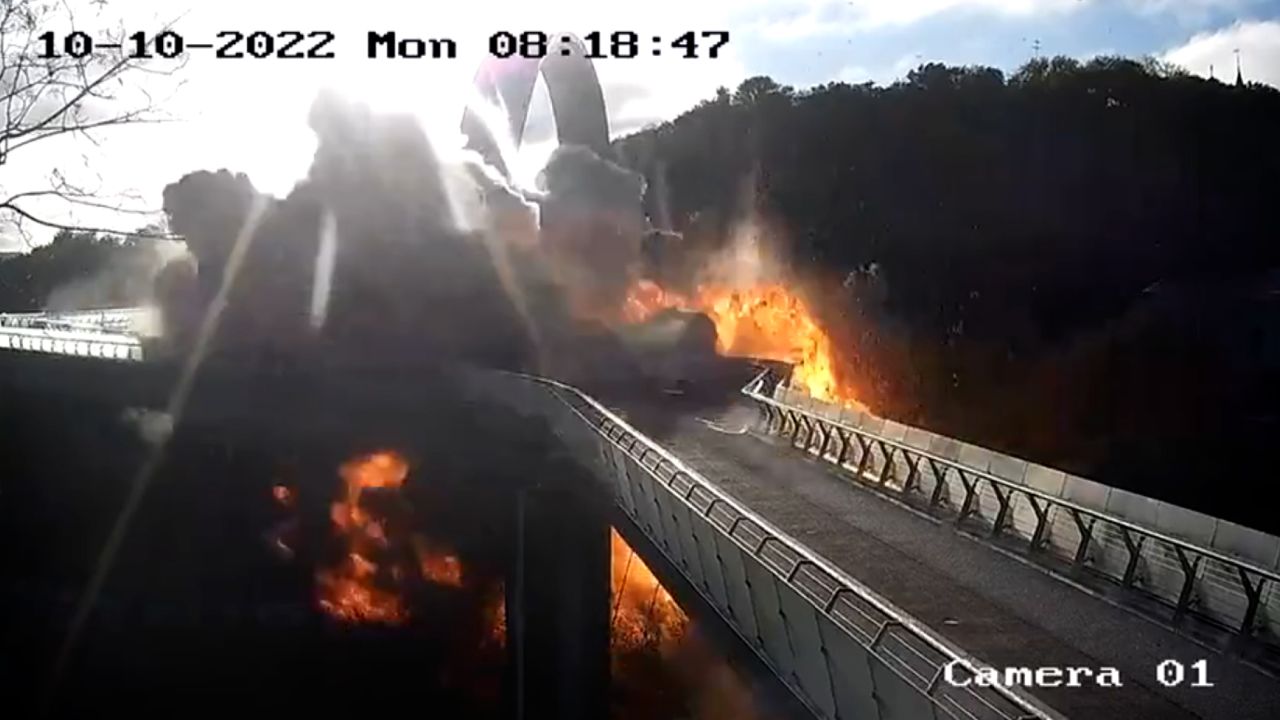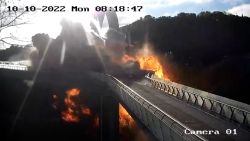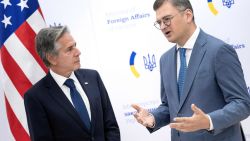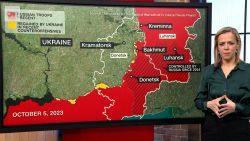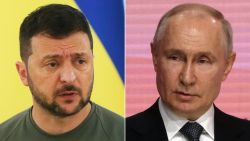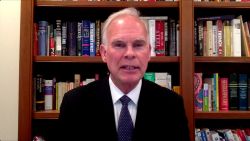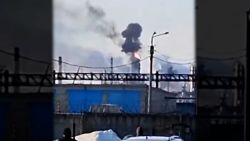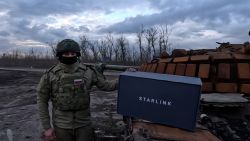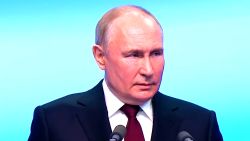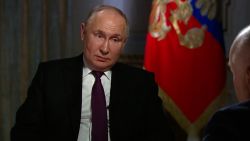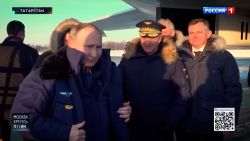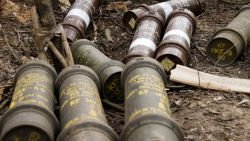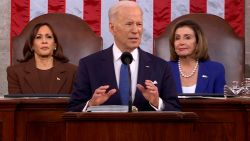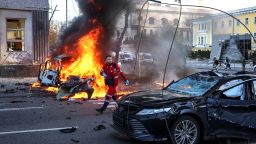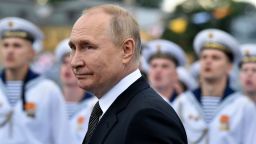Editor’s Note: Michael Bociurkiw (@WorldAffairsPro) is a global affairs analyst. He is a senior fellow at the Atlantic Council and a former spokesperson for the Organization for Security and Cooperation in Europe. He is a regular contributor to CNN Opinion. The opinions expressed in this commentary are his own. View more opinion at CNN.
Even amid irrepressible jubilation here in Ukraine in the aftermath of a massive explosion that hit the hugely strategic and symbolic Kerch Straight bridge over the weekend, fears of retaliation by the Kremlin were never far away.
On Monday, those fears were realized.
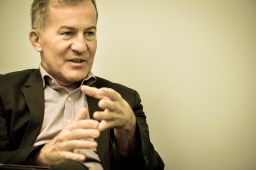
Early in the morning, missile strikes hit the capital Kyiv for the first time in months and in areas far closer to the center of power.
The large-scale Russian bombardment struck several cities – including far reaches of western Ukraine close to NATO’s eastern flank – across the country almost simultaneously, propelling the conflict into a new phase and coming just as much of the country was starting to roar back to life.
The strikes occurred as people headed to work and while kids were being dropped off at schools. A friend in Kyiv texted me that she had just exited a bridge span 10 minutes before it was struck.
One of the most resilient Ukrainians I know, she simply wrote: “I’m not well right now.”
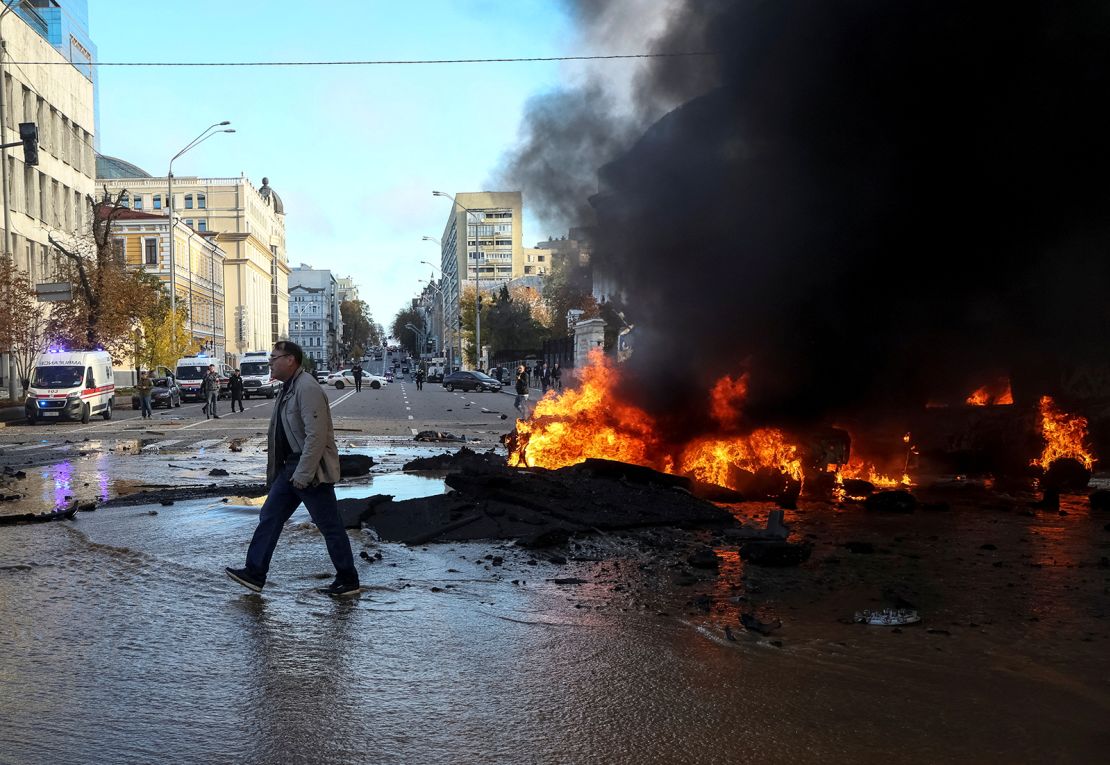
Unverified video on social media showed hits near the Taras Shevchenko National University of Kyiv and close to Maidan Square, just a short stroll from the Presidential Office Building. Five people were killed as a result of strikes on the capital, according to Ukrainian officials.
Additional strikes were also reported on the cities of Dnipro, Zhytomyr, Ivano-Frankivsk, Sumy, Kharkiv, Lviv and Mykolaiv.
As of midday local time, the area around my office in Odesa remained eerily quiet in between air raid sirens, with reports that three missiles and five kamikaze drones were shot down. (Normally at this time of the day, nearby restaurants would be heaving with customers, and chatter of plans for upcoming weddings and parties).
Monday’s attacks also came just a few hours after Zaporizhzhia, a southeastern city close to the largest nuclear power plant in Europe, was hit by multiple strikes on apartment buildings, mostly while people slept. At least 17 people were killed and several dozens injured.
In a video filmed outside his office Monday, a defiant President Volodymyr Zelensky said it appeared many of the 100 or so missile strikes across Ukraine were aimed at the country’s energy infrastructure. At least 11 important infrastructure facilities in eight regions and the capital have been damaged; some provinces are without power, Ukrainian Prime Minister Denys Shmyhal said.
A nation that was roaring to life
In scenes reminiscent of the early days of the war when Russian forces neared the capital, some Kyiv media outlets temporarily moved their operations to underground bomb shelters. In one metro station serving as a shelter, large numbers of people took cover on platforms as a small group sang patriotic Ukrainian songs.
Indeed, millions of people in cities across Ukraine will be spending most of the day in bomb shelters, at the urging of officials, while businesses have been asked to shift work online as much as possible.
The minister for education has also called for home-schooling for children until Friday, according to local radio.
Just as many regions of Ukraine were starting to roar back to life, and with countless asylum seekers returning home, the attacks risk causing another blow to business confidence.
What the Crimea bridge means to Putin
In some ways, Monday’s attacks were not a surprise – especially after Russian President Vladimir Putin on Sunday accused Kyiv of attacking the Kerch bridge, calling it an “act of terrorism.”
For Putin, the symbolism of the only bridge linking mainland Russia and Crimea cannot be overstated. That the attack took place a day after his 70th birthday (the timing prompted creative social media denizens to create a split-screen video of Marilyn Monroe singing ‘Happy Birthday, Mr President”) can be taken as an added blow to an aging autocrat whose ability to withstand shame and humiliation is probably nil.
Hardwiring newly claimed territory with expensive, record-breaking infrastructure projects seems to be a penchant of dictators. In 2018, Putin personally opened the Kerch bridge – Europe’s longest – by driving a truck across it. That same year, one of the first things Chinese President Xi Jinping did after Beijing reclaimed Macau and Hong Kong was to connect the former Portuguese and British territories with the world’s longest sea crossing bridge. The $20 billion, 34-mile road bridge opened after about two years of delays.
To add to Putin’s sense of humiliation, the bridge explosion came amid a surging Ukrainian counteroffensive that has seized key pockets of Russian-controlled territory, including in regions Putin recently annexed.
The reaction among Ukrainians to the explosion was instantaneous: humorous memes lit up social media channels like a Christmas tree. Many shared their sense of jubilation via text messages.
It was short-lived.
For Putin, consumed by pride and self-interest, sitting still was never an option. He responded in the only way he knows how, by unleashing more death and destruction, with the force that probably comes natural to a former KGB operative.
It was also an act of selfish desperation: facing increasing criticism at home, including on state-controlled television, has placed Putin on unusually thin ice.
What next?
Before Monday’s strikes, the Chief of the Main Intelligence Directorate at Ukraine’s Defense Ministry, Major General Kyrylo Budanov, had told Ukrainian journalist Roman Kravets in late August that, “by the end of the year at the minimum we have to enter Crimea” – suggesting a plan to push back Russian forces to pre-2014 lines, which is massively supported by Ukrainians I’ve spoken to.
But with the ability to target major Ukrainian cities, including the capital, Russia has shown that it can still cause immense damage and dislocation. Monday’s strikes heightens Russia-Ukraine conflict to one of its most dangerous phases since 2014. Tensions were already high from Putin’s earlier statements suggesting that tactical nuclear weapons remain on the table.
The significance of the strikes on central Kyiv, and close to the government quarter, cannot be overstated. Western governments should see it as a red line being crossed on this 229th day of the war.
What is crucially important now is for Washington and other allies to use urgent telephone diplomacy to urge China and India – which presumably still have some leverage over Putin – to resist the urge to use even more deadly weapons.
Against a man who probes for weakness and tends to exploit divisions, the most important thing for the West right now is to show unity and resolve. Western governments also need to realize that rhetoric and sanctions have little if no impact on Putin’s actions. They need to continue to arm Ukrainians and provide urgent training, even if it means sending military experts closer to the battlefield to speed up the integration of high technology weapons.
Furthermore, high tech defense systems are needed to protect Kyiv and crucial energy infrastructure around the country. With winter just around the corner, the need to protect heating systems is urgent.
The time has also come for the West to further isolate Russia with trade and travel restrictions – but for that to have sufficient impact, Turkey and Gulf states, which receive many Russian tourists, need to be pressured to come on board.
Get our free weekly newsletter
Anything short of these measures will only allow Putin to continue his senseless violence and further exacerbate a humanitarian crisis that will reverberate throughout Europe. A weak reaction will be taken as a sign in the Kremlin that it can continue to weaponize energy, migration and food.
This is a global war – and should be treated as such.
